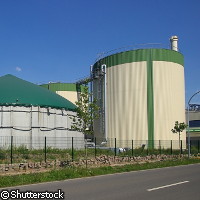EU project treats agro waste for biogas
The large amount of agricultural waste generated in the EU each year is a headache for farmers, who are obliged to get rid of it. The treatments they use tend to be cheap but inadequate. An alternative treatment is the use of biogas via anaerobic digestion (using microorganisms to break down the material in the absence of oxygen). The biogas treatment effectively fuels energy and nutrient recovery, with the added bonus of preventing pollution. The AGROBIOGAS ('An integrated approach for biogas production with agricultural waste') project, backed by the EU's Sixth Framework Programme (FP6) with EUR 2.1 million in funding, set its sights on developing this technology, which offers an effective way to treat agricultural waste while being a realistic option for farmers. According to the AGROBIOGAS partners, decentralising anaerobic digestion (AD) by using co-digestion with other organic residue could boost the efficiency of AD with agricultural waste. Using a co-digestion design would give farmers the chance to treat their agricultural waste and other organic materials at the same time. But they could also make money by treating and managing organic waste from other sources, as well as using or selling its outputs (e.g. electrical power). The partners also believe that entering information about local biogas projects into a database that is accessible to all farmers would provide further benefits. To provide an effective way for all European farmers to treat agricultural waste, the AGROBIOGAS consortium stresses that the ideal conditions for applying treatment technology must be made clear, and that the method should also be adapted to local conditions. The relevant information, the partners say, should be provided to farmers through the Industrial Association Groupings (IAGs) that represent them. AGROBIOGAS coordinator Thorkild Q. Frandsen of the Danish Agricultural Advisory Service said the project is unique because of the integrated approach taken for the development of the biogas sector. 'This is illustrated in the Helpdesk website,' he said. The Helpdesk is a platform for people who need advice or consultation concerning the operation of agricultural biogas plants in Europe. 'AGROBIOGAS contributes to spreading the knowledge of benefits from biogas to regions with little experience with biogas production, and no local biogas plants,' Mr Frandsen told Research Headlines. EU Member States that have been reached by the AGROBIOGAS project include Greece, Spain and Slovakia. To date, the AGROBIOGAS reports a number of achievements including the development of an AD process simulation toolkit. 'An integrated part of the toolkit is a biogas substrate database in which a lot of information is gathered for 25 different substrates for biogas production,' the project coordinator said. 'For instance, you can find data on biogas yield and data on chemical composition for each of the substrates.' Mr Frandsen also noted the AGROBIOGAS substrate database and the AD process simulation toolkit are connected to an investment decision tool that serves to 'facilitate a first economic evaluation of a given biogas project'. The process simulation toolkit can be used in different ways, Mr Frandsen told Research Headlines. It can be used in the planning phase before setting up the biogas plant; by the owners of existing biogas plants to boost the efficiency and stability of their specific plant; or for teaching purposes at the university level. 'It is an excellent tool for demonstrating the complexity and dynamics of the biogas process,' he said. So who will benefit most from this innovation? 'I think both small and medium-sized [enterprises] (SMEs) and farmers will benefit from the tools and knowledge generated in the AGROBIOGAS project,' Mr Frandsen pointed out. 'Due to the complexity of the toolkit, we believe that the toolkit will mainly be used by farmers' advisors or biogas experts,' he added. In terms of future developments, Mr Frandsen said the experience and knowledge created in the AGROBIOGAS project could be spread to other European regions. He also underlined that since biogas is one of the most cost-effective ways of cutting emissions, biogas will have a solid future in both the European and global arenas. For example, the Danish Government last April launched the 'Green Growth' action plan, which targets the agricultural sector. 'Biogas is one of the focus areas in this action plan and Denmark set a goal that by the year 2020, 40% of the manure from animal production shall be used for the production of renewable energy,' Mr Frandsen highlighted. 'Biogas is the key instrument to achieve this goal.' The consortium includes partners from Belgium, Denmark, Germany, Greece, Spain, France, Italy, Austria, Slovakia and Sweden.
Countries
Denmark

